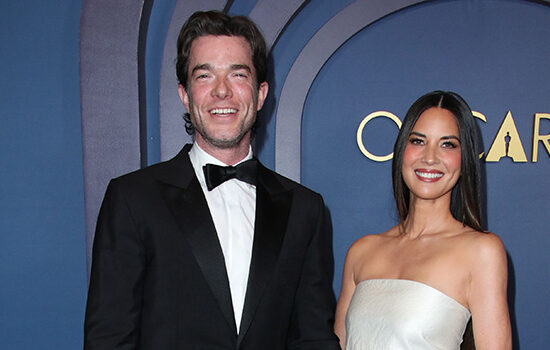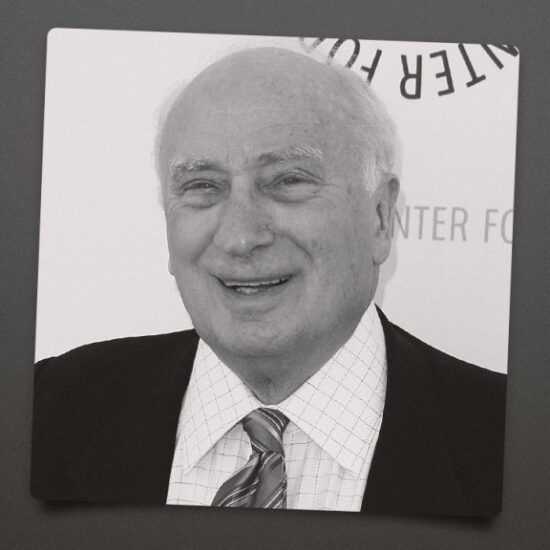
In the most lacerating episode of Max’s dearly departed comedy The Other Two, the characters attend the premiere of a Broadway show titled 8 Gay Men with AIDS: A Poem in Many Hours. Wondering about future roles for his Method-actor boyfriend, who stars in the play, Drew Tarver’s Cary wonders, “Is there anything coming up that is prestigious and gay, but doesn’t have, like, nonstop trauma in it?”
The fact is, we’re not at a point, as a society, where we can stop telling stories of trauma. There remains a cultural need for narratives that foreground the AIDS epidemic, that acknowledge the horrors of the Holocaust and slavery. That said, if you’re going to do a trauma-fueled, decades-spanning odyssey of gay life from McCarthy to Reagan, weaving in the Red Scare and the early days of AIDS, comparisons to Angels in America are going to be inevitable. And you won’t win.
Fellow Travelers
The Bottom Line
Strong performances, familiar trauma-based backdrop.
Airdate: 9 p.m. Sunday, October 29 (Showtime)
Cast: Matthew Bomer, Jonathan Bailey, Allison Williams, Jelani Alladin, Noah J. Ricketts
Creator: Ron Nyswaner
Ron Nyswaner’s Showtime limited series Fellow Travelers has the temporal reach of Angels in America but none of the formal experimentaion or operatic scope (which is a bit odd since Thomas Mallon’s source novel was previously adapted as an opera). A love story, a rudimentary history lesson and, yes, an ample dose of trauma porn, Fellow Travelers is by turns vital and stodgy, with passionate, emotional elements — stars Matt Bomer, Jonathan Bailey and Allison Williams are consistently compelling across eight hours — in conflict with by-the-numbers storylines.
The series begins in 1986 with Bomer’s Hawkins Fuller, introduced as an aging family man, finding out that Bailey’s Tim Laughlin has been hospitalized in San Francisco. “Hawk” is closeted, but living a life of fundamental hollowness. Tim is out, but dying.
Back in 1952, Hawk is a war hero, State Department up-and-comer and fixer for Senator Smith (Linus Roache, in a role that reduces real-life Senator Lester Hunt to a pale fictionalization), a liberal politician who hopes Hawk will marry his daughter Lucy (Williams). But Hawk, who has no ideology other than career advancement, is more interested in rough gay sexual encounters in parks and restrooms.
Then Hawk meets Tim, a former seminary student and anti-Communist true believer. Hawk helps Tim get a job with Senator Joseph McCarthy (Chris Bauer with a prosthetic penis-nose) on a staff with Roy Cohn (Will Brill) and Cohn’s protege David Schine (Matt Visser).
As McCarthy and company are making D.C. increasingly less safe for reds and homosexuals, the outgoing Hawk and the sexually timid Tim — the series dances around their age difference — begin a dalliance that progresses from kinky and transitory to kinky and romantic.
There’s also a storyline with Hawk’s kinda-ex Marcus (Jelani Alladin), an aspiring journalist who encounters racism and homophobia and falls for nightclub performer Frankie (Noah J. Rickets). If that sounds like an afterthought, it plays like one, too. Somebody correctly noted that the story needed this thread of intersectionality, but also refused to sacrifice the McCarthy Hearings material. The result is that Marcus and Frankie feel like narratve interlopers rather than fully realized characters.
The McCarthy subplot is thoroughly disposable — and sucks up too much oxygen from the first five episodes — but will be the thing that viewers uninterested in the love story gravitate toward. Brill has a rodent-like high energy as Cohn, and Bauer has fun playing dress-up. But the “They were all self-hating gays” angle is reductive — a weakness in the series.
The second half of the show hops among backdrops — Vietnam protests, the aftermath of the Harvey Milk assassination — but sets aside latex-enclosed re-enactments and historical namedropping for interpersonal relationships. It’s much stronger.
The limited appetite for Showtime’s bland, rubberized recent historical Showtime chronicles — The Loudest Voice, The Comey Rule — suggests that Fellow Travelers would have been better off focusing entirely on Bomer and Bailey, who are both exceptional. Though they never look quite convincing as either the younger or older incarnations of their characters, they overcome the mediocre makeup.
Bailey’s turn is more volatile, his youthful exuberance gradually giving way to tormented combustibility. In the more consistently externalized role, Bomer locates a wildly charismatic, self-destructive Don Draper streak in Hawk; even when he realizes he can’t go his whole life hurting the people who care about him most, Hawk can’t decide whom he wants to hurt least.
The sex scenes are plentiful and graphic. Nyswaner (Philadelphia) and the series directors, led by Daniel Minahan (Halston), tailor the chemistry and choreography of the couplings around Tim and Hawk’s shifting power dynamics. However frequently you might think, “I’ve never seen THAT position on TV,” the frequent boinking never feels gratuitous.
The cracks in Hawk’s impeccable exterior play compellingly off of Lucy’s staged domesticity. Williams has become one of our most underrated performers by specializing in characters whose unlikable obliviousness is a defense mechanism, not a flaw. The show wants you to empathize with Lucy — the “other woman” trapped in the middle of a love affair for the ages — but never to pity her, and Williams nails this instantly recognizable humanity. The tension any time Lucy is sizing up either her husband or her husband’s special friend is one of the best things in Fellow Travelers.
The series could have just been that — a chamber drama about three people connected by inconvenient and untenable love. Nobody would have needed to be saddled with synthetic crow’s feet or frosted graying hair. Or stare down a HUAC panel. Or get AIDS. Nobody would have needed to be traumatized beyond the inherent trauma of heartbreak. But nobody, of course, would make that series until the industry’s definition of “prestige” changes. This is what we get, and sometimes it’s effective enough.













